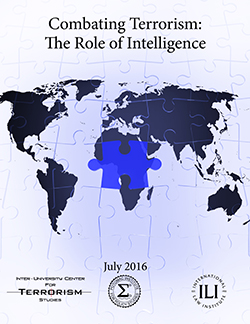 The failure of contemporary societies during the past sixty years in the post-World War II period to effectively combat terrorism at home and abroad is, indeed, puzzling. After all, all nations are fully aware that the most critical element in combating the challenge of terrorism is intelligence. That is, the knowledge acquired, whether overtly or covertly, for the purpose of both internal and external statecraft.
The failure of contemporary societies during the past sixty years in the post-World War II period to effectively combat terrorism at home and abroad is, indeed, puzzling. After all, all nations are fully aware that the most critical element in combating the challenge of terrorism is intelligence. That is, the knowledge acquired, whether overtly or covertly, for the purpose of both internal and external statecraft.
And yet, despite this awareness, the grim reality is that terrorism is still attractive and works. For instance, according to recent press reports, during the past year and a half alone some 2,063 attacks were recorded in the Middle East, Africa, and Asia, with a death toll of 28,031. Likewise, 46 attacks occurred in Europe and the Americas, and as a result of which some 658 were killed.
The purpose of this introduction is to provide an academic context for the apparent lingering confusion regarding the nature and implications of intelligence in democracies. It presents a brief overview of the challenge of modern terrorism, outlines key aspects of the role of intelligence in confronting the threats at home and abroad, and reports on the two latest academic efforts in this security area that are incorporated in this study.
Download pdf here.



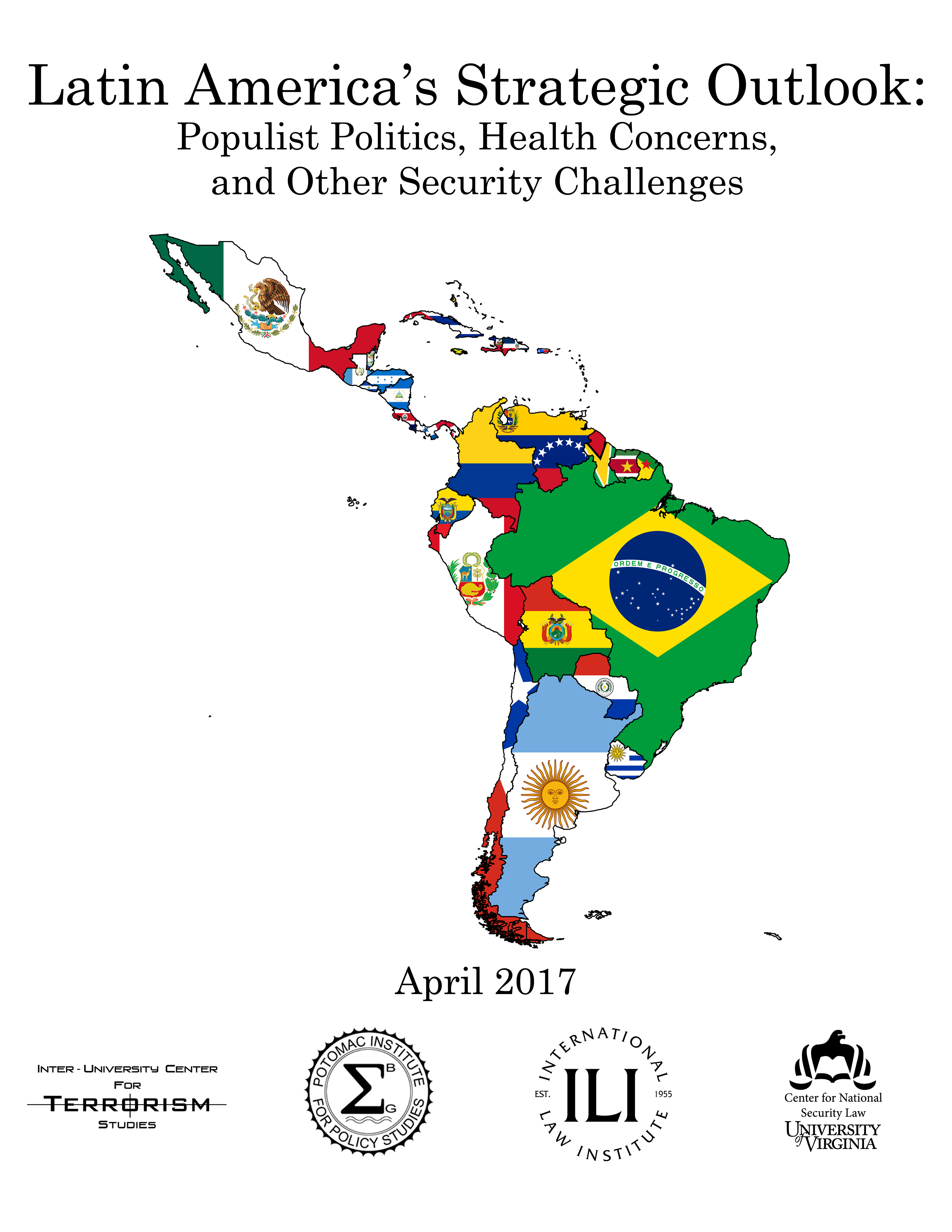 Latin America continues to face multiple security challenges including natural disasters, infectious diseases, organized crime, terrorism, migration, economic development, and threats to democratic governance.
Latin America continues to face multiple security challenges including natural disasters, infectious diseases, organized crime, terrorism, migration, economic development, and threats to democratic governance.
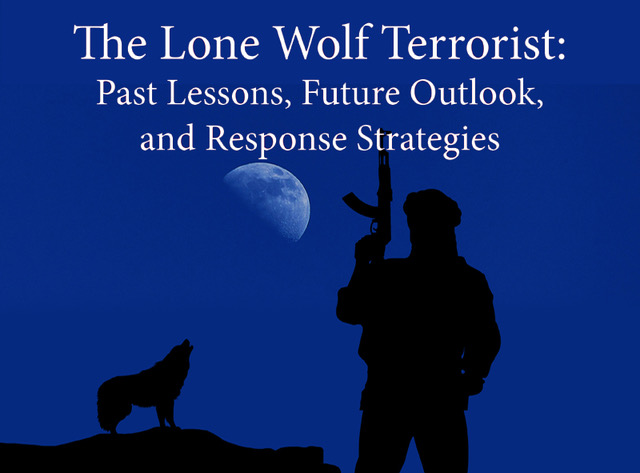 The latest terrorist incidents in the U.S., Europe, the Middle East, Asia, and elsewhere, are once again a grim reminder of the expanding operational roles of "lone wolves." Whether they are self-radicalized or linked to home-grown or foreign groups, their involvement reflects a worrisome weakness in the security chain of modern society.
The latest terrorist incidents in the U.S., Europe, the Middle East, Asia, and elsewhere, are once again a grim reminder of the expanding operational roles of "lone wolves." Whether they are self-radicalized or linked to home-grown or foreign groups, their involvement reflects a worrisome weakness in the security chain of modern society.
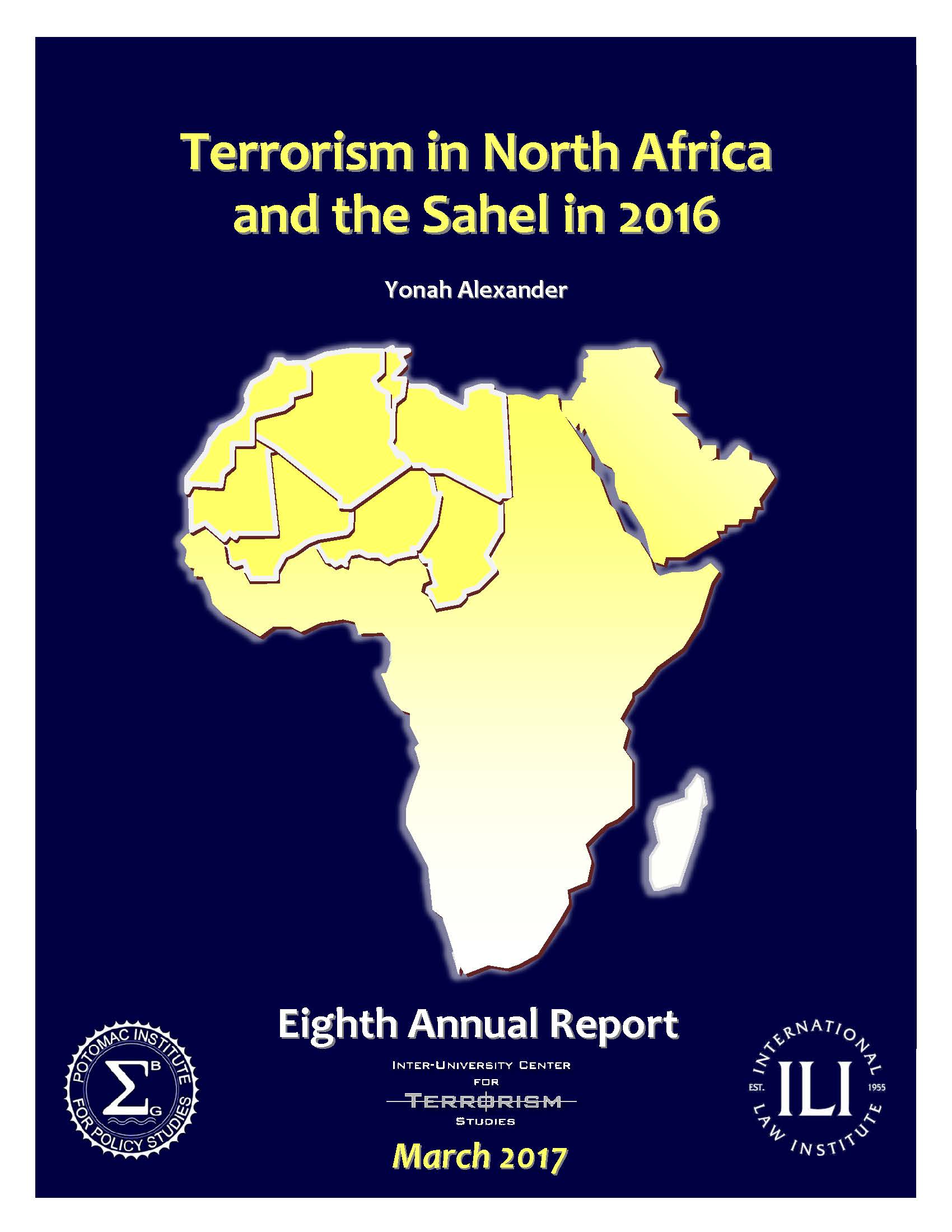 On April 13,2017,the Inter-University Center for Terrorism Studies (IUCTS) published its eighth annual report, "Terrorism in North Africa and the Sahel in 2016," authored by Prof. Yonah Alexander, Director--IUCTS. The report finds the region & global community facing the most serious security challenges since 9/11, from natural and man-made threats. The rise of the Islamic State and the resilience of al-Qa’ida and their affiliates in Africa in 2016 have resulted in continued instability on the continent with a costly strategic impact inter-regionally. The study recommends the U.S. & allies engage more effectively to slow a security crisis that is erupting across Africa’s “arc of instability.”
On April 13,2017,the Inter-University Center for Terrorism Studies (IUCTS) published its eighth annual report, "Terrorism in North Africa and the Sahel in 2016," authored by Prof. Yonah Alexander, Director--IUCTS. The report finds the region & global community facing the most serious security challenges since 9/11, from natural and man-made threats. The rise of the Islamic State and the resilience of al-Qa’ida and their affiliates in Africa in 2016 have resulted in continued instability on the continent with a costly strategic impact inter-regionally. The study recommends the U.S. & allies engage more effectively to slow a security crisis that is erupting across Africa’s “arc of instability.”
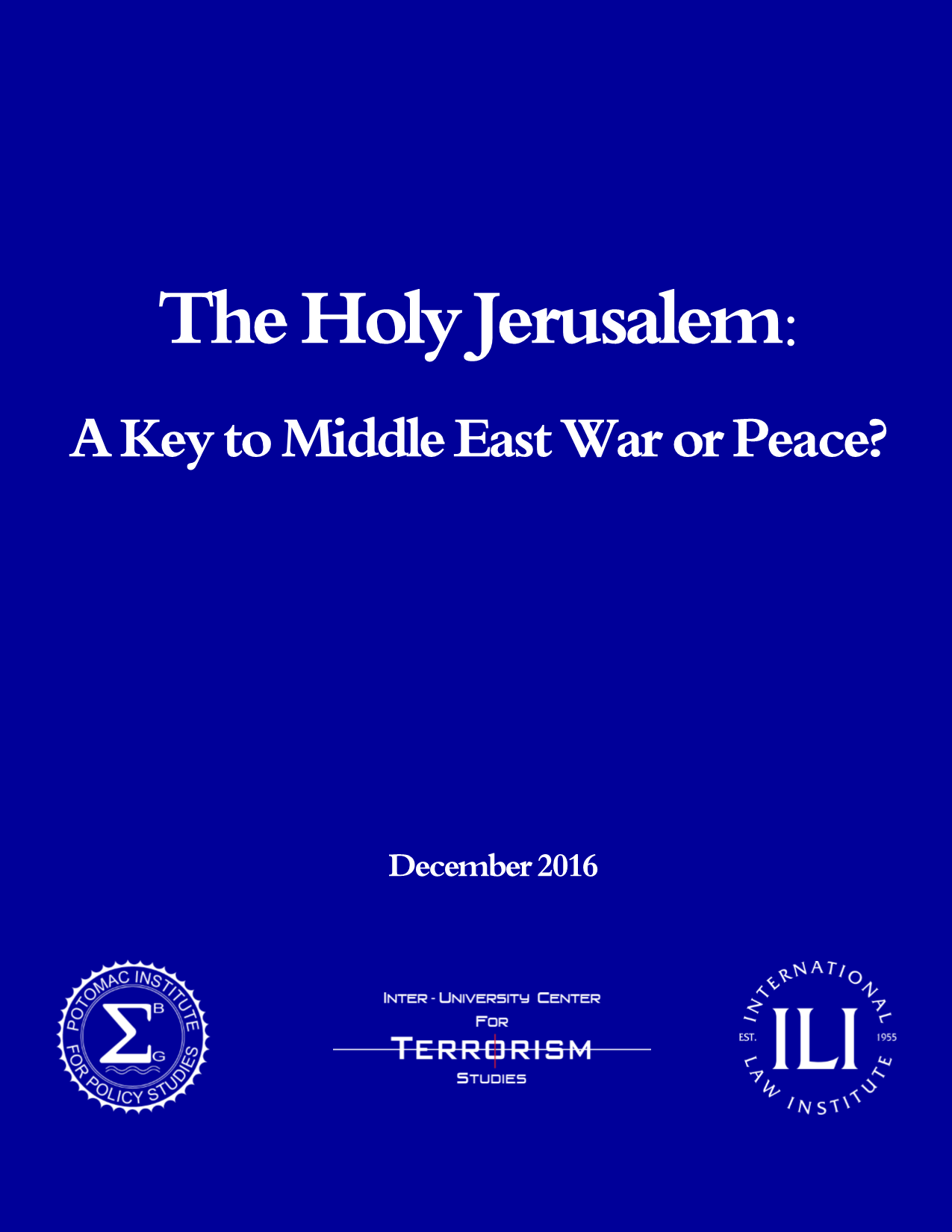 As the new administration of President Donald J. Trump is beginning to develop its Middle East foreign policy strategy, the decades-old Israeli-Palestinian conflict still persists. In addition to the multiple outstanding issues to be resolved by the parties, such as the need for mutual recognition and the settling of boundary disputes, questions remain regarding the future of Jerusalem, the Holy City, which is considered by Israel as its eternal capital—and which the Palestinians also see as their own capital in a future state.
As the new administration of President Donald J. Trump is beginning to develop its Middle East foreign policy strategy, the decades-old Israeli-Palestinian conflict still persists. In addition to the multiple outstanding issues to be resolved by the parties, such as the need for mutual recognition and the settling of boundary disputes, questions remain regarding the future of Jerusalem, the Holy City, which is considered by Israel as its eternal capital—and which the Palestinians also see as their own capital in a future state.